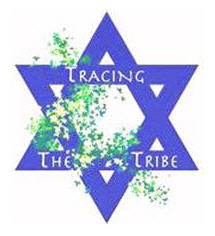His name was an immediate attraction: Such an obviously Moslem first name like Rashid with a Kaplanov (son of Kaplan)?
His obituary on January 7 in the UK Times is here.
Kaplanov carried many mysteries to the grave. What is certain is that he was one of the world's great polyglots — a scruffy, unworldly, lovable man with a prodigious memory and a mastery of 36 languages, including some of the hardest, such as Hungarian (of which his knowledge extended to regional dialects), and some of the most obscure (such as Mirandese, spoken in a small area of northern Portugal).
A longstanding member of the Russian Academy of Sciences' department of general history, he was the first Russian citizen to preside over the European Association for Jewish Studies and did much to re-establish Jewish learning, secular and religious, as a subject of teaching and research in Eastern Europe after the collapse of the Soviet Union.
His family history is fascinating to a genealogist:
Born in Moscow in 1949, Kaplanov's grandfather and namesake was Prince of the Kumyks - a Dagestan Moslem mountain tribe numbering some 200,000. Dagestan extends from Chechnya to the Caspian Sea. Tradition says the Kumyk princes are direct descendants of Muhammad and another theory says they "derive from a lost tribe of Jews — the Khazars."
His grandfather, Prince Rashidkhan Khan Kaplanov had a Jewish wife and was a leader of the short-lived government of the Caucasus during the Russian Revolution. The professor's mother was also Jewish. The obituary offers more information on bothhis father and grandfather.
In the 1990s, although not observant, he became involved in the revival of Jewish studies in the FSU. His doctoral thesis at the Institute of World History of the Russian Academy of Sciences was “The political system of Portugal, 1945-74.”
Kaplanov began researching the Sephardic (Spanish and Portuguese) Jews who had lived in Moscow after their expulsion from the Iberian peninsula, 1492-1497.
His interests included:
-The Karaites (a Jewish sect, Black Sea region),
-The Karaims (Jewish origin, Lithuania),
-The Sorbians (Slavic group, East Germany),
-18th-century Sephardic Jews' conversion to Russian Orthodox church in Moscow
-Antonio Ribeira Sanches, Portuguese-Jewish physician to the Russian court
-The Karaite pronunciation of Hebrew.
One of his languages was the unique and difficult Basque. When a Portuguese scholar asked why he learned it, Kaplanov said that the KGB was unlikely to have a censor able to read his letters in that language.
Politics apart, he was genuinely fascinated by topics that required the knowledge of many languages and obscure facts, and which allowed him to bury himself in Russia's greatest library. His background led him to identify with the languages and cultures of lost and endangered tribes and, by studying them, to preserve their memory. ... Kaplanov devoted the last 16 years of his life to the intellectual resurgence of Jewish culture among the remnants of communities almost destroyed by the Nazis and the Communists.
The professor headed the Modern Jewish history department at Moscow Jewish University, and was academic director of Sepher (Book) which he founded (1994) to promote Jewish civilization teaching in Russian universities and elsewhere.
In 2002, he was elected president of the European Association of Jewish Studies, following Sepher's success and many conference apperances in Bulgaria, the Czech Republic, Germany, Israel, Italy, Portugal, Poland, Spain, Ukraine, the UK and the US.
Proud of his Muslim as well as his Jewish roots, Kaplanov was saddened that he did not marry or produce an heir, which meant that he was the last of the Kumyk princes.
Professor Rashid Kaplanov, historian and president of the European Association of Jewish Studies, was born on January 19, 1949. He died on November 27, 2007, aged 58.
Joel and I would have liked to ask him many questions - particularly about Sephardic Jews in Moscow - but we're too late.





































No comments:
Post a Comment